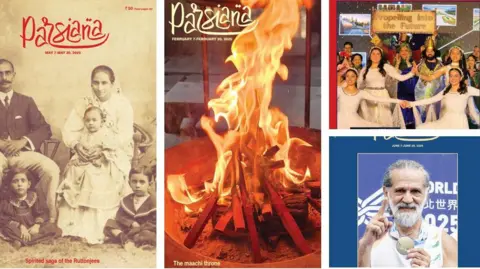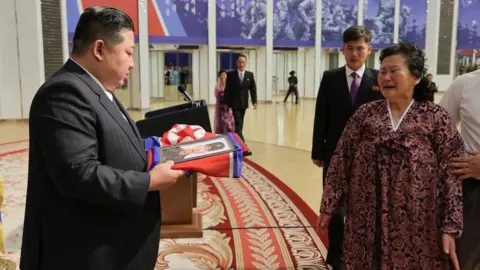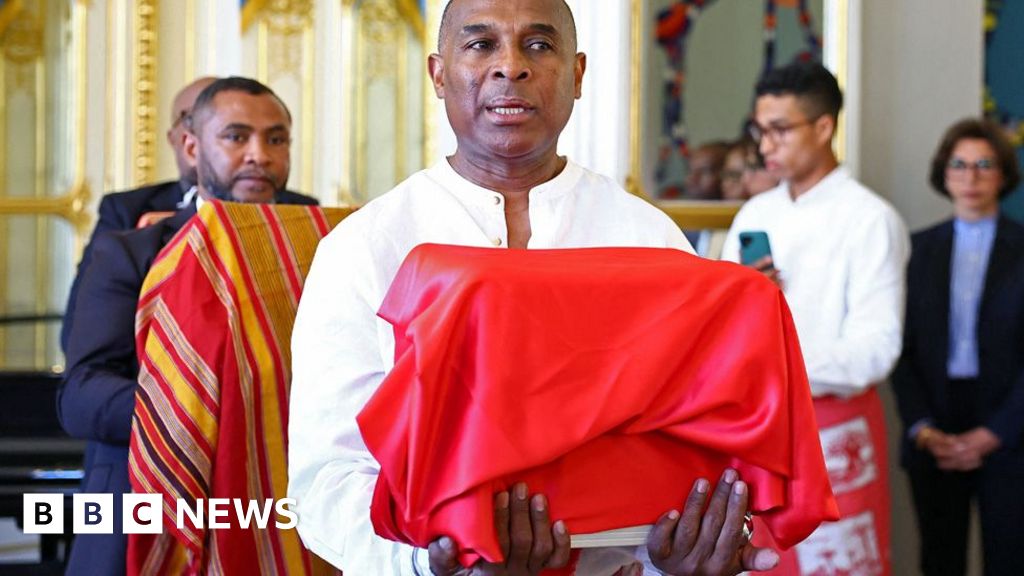The vibrant ceremonies celebrating the title of "Leopard Slayer," locally revered as "Ogbuagu," are alive and well in Oguta, southeastern Nigeria. Recently, at the age of 60, Ken Okoroafor, a businessman and healthcare professional, fulfilled his childhood aspiration of acquiring this prestigious title amidst a jubilant local crowd. Traditionally, slaying a leopard conferred significant social prestige, requiring the hunter to present the animal to the local king—a practice that harked back to times when courage and hunting prowess were paramount.
Sadly, the ancient rite has evolved. With the leopard population dwindling due to conservation concerns, the last recorded leopard sacrifice dates back to 1987. The Igbuu Society, which boasts around 75 members, now allows a substantial financial contribution in place of the animal, fostering a sense of community among the 25 villages surrounding Oguta. According to Okoroafor, membership in the society not only brings respect but also influences local decision-making—an alluring aspect for those wishing to solidify their ties to their homeland.
Victor Aniche, the current secretary of the Igbuu Society, sheds light on the societal transition away from hunting leopards; the first known use of money as a substitute appeared in 1942 due to personal tragedy. Despite the societal changes, the journey to becoming an Ogbuagu remains rigorous and includes three significant stages filled with ceremonial rites.
During recent ceremonies, men wearing gold-colored swords, traditional attire, and accompanied by family gathered in festive celebration. Zubby Ndupu, a recent initiate, reenacted the hunt before the king's representatives, marking the initial step in his journey. The societal structure remains male-dominated, with women observing from the sidelines.
As the members feast on local dishes, the process becomes a community affair filled with cheers, music, and the clinking of swords—a testament to their cultural heritage. Each initiate, once accepted, gains not only respect but also unique privileges, such as the ability to greet the king without bowing.
However, the tradition does have its critics; some argue that the funds spent on these elaborate celebrations could be redirected towards local development or education. Nonetheless, Aniche emphasizes that the Igbuu Society fosters achievements among its members, underlining their role in local employment and economic stimulation.
With half of Igbuu Society's members now residing abroad, the inclination to return home frequently reflects the importance of roots and tradition in modern life. For many, the title of Ogbuagu symbolizes a lasting connection to their heritage and community, transcending geographical divides.
As Oguta’s storied past blends with contemporary life, the "Leopard Slayer" tradition stands resilient—showing that, while methods may change, the essence of this revered title endures as a symbol of achievement, community, and cultural pride.
Sadly, the ancient rite has evolved. With the leopard population dwindling due to conservation concerns, the last recorded leopard sacrifice dates back to 1987. The Igbuu Society, which boasts around 75 members, now allows a substantial financial contribution in place of the animal, fostering a sense of community among the 25 villages surrounding Oguta. According to Okoroafor, membership in the society not only brings respect but also influences local decision-making—an alluring aspect for those wishing to solidify their ties to their homeland.
Victor Aniche, the current secretary of the Igbuu Society, sheds light on the societal transition away from hunting leopards; the first known use of money as a substitute appeared in 1942 due to personal tragedy. Despite the societal changes, the journey to becoming an Ogbuagu remains rigorous and includes three significant stages filled with ceremonial rites.
During recent ceremonies, men wearing gold-colored swords, traditional attire, and accompanied by family gathered in festive celebration. Zubby Ndupu, a recent initiate, reenacted the hunt before the king's representatives, marking the initial step in his journey. The societal structure remains male-dominated, with women observing from the sidelines.
As the members feast on local dishes, the process becomes a community affair filled with cheers, music, and the clinking of swords—a testament to their cultural heritage. Each initiate, once accepted, gains not only respect but also unique privileges, such as the ability to greet the king without bowing.
However, the tradition does have its critics; some argue that the funds spent on these elaborate celebrations could be redirected towards local development or education. Nonetheless, Aniche emphasizes that the Igbuu Society fosters achievements among its members, underlining their role in local employment and economic stimulation.
With half of Igbuu Society's members now residing abroad, the inclination to return home frequently reflects the importance of roots and tradition in modern life. For many, the title of Ogbuagu symbolizes a lasting connection to their heritage and community, transcending geographical divides.
As Oguta’s storied past blends with contemporary life, the "Leopard Slayer" tradition stands resilient—showing that, while methods may change, the essence of this revered title endures as a symbol of achievement, community, and cultural pride.





















